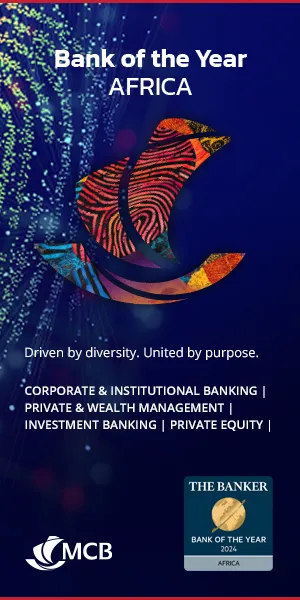Optimism abounds in The Gambia now that Yahya Jammeh has finally been driven from power after 23 years as president.
The end of Jammeh’s increasingly catastrophic rule is an enormous first step towards restoring sanity to government decision-making. But the new president, Adama Barrow, faces a Herculean task in jumpstarting the failing economy.
He will have to reassure jittery foreign tourists, attract oil and gas investments and deregulate agricultural exports for the positive feeling to endure. A key priority for Barrow will be re-establishing The Gambia’s reputation for political stability after the uncertainty and chaos of the past two months.
Mitigating the damage the recent crisis has inflicted on the tourism industry – the nation’s main source of foreign exchange − is crucial. On the bright side, Jammeh did eventually depart without troops from other West African nations having to fire a shot, and tour operators have already resumed their scheduled flights to Banjul.
Yet, the images of thousands of European tourists being evacuated in January will remain the enduring memory for most Western observers. As a result, fewer people are likely to visit the country over the next two to three years.
What will Barrow’s presidency mean for investors?
Although the new president has so far said little about how he intends to reform the economy, his policymaking can hardly be more erratic than that of his predecessor. Indeed, decades of eccentric and brutal rule has left Barrow facing a huge rebuilding job.
The Gambia is currently assessed as the world’s eighth worst-performing country in Verisk Maplecroft’s Fiscal Environment Index 2017-Q1, largely due to Jammeh’s appalling economic management. Barrow can achieve some quick wins by decisively signalling that Jammeh’s chaotic and sometimes nationalistic approach to economic policy is firmly confined to the past. Investors will certainly need reassuring.
Between 2012 and 2015, Jammeh imposed overvalued exchange rates on at least five occasions as he sought to prop up the Gambian dalasi. Businesses holding foreign currencies instantly lost up to 33% on their capital because of such moves. Unsurprisingly, most investors concluded that The Gambia was simply too risky: inward foreign direct investment plummeted from USD93 million in 2012 to a meagre USD11 million in 2015.
Bringing in foreign experts to help run the economy and heeding the IMF’s advice to maintain a floating exchange rate will buy Barrow some good will. He is also much more likely to consult with international investors in advance of policies being applied – a courtesy that Jammeh rarely afforded.
Barrow’s initial steps to dismantle Jammeh’s brutal methods − including the use of torture against perceived critics − will further boost the country’s economic prospects. Indeed, the EU has already announced it will resume its aid programme, which was frozen after Jammeh introduced a punitive anti-homosexuality law in 2014. Whether the US will follow suit in restoring trade privileges is rather less certain, given President Trump’s protectionist attitude.
Oil and peanuts to provide a recipe for success
Halting the exodus of young people is another essential task for Barrow. In 2010/2011, The Gambia recorded the 17th highest emigration rate in the world for highly skilled labourers, according to the OECD. In addition, the number of Gambian nationals applying for political asylum in the EU rocketed from 1,200 to 13,405 between 2008 and 2015. Stopping the crackdown on political opponents should be easily achievable, but Barrow will also have to find a way to resuscitate the economy if he is to reverse the ongoing ‘brain drain’.
Deregulating the market for peanuts – the country’s major export – would have an immediate positive impact. Farmers are currently unable to trade their produce freely because they are obliged to sell to the state-run Gambia Groundnut Corporation, which has a monopoly on exporting peanuts. Allowing producers to sell directly to neighbouring Senegal, where groundnut prices are two-thirds higher, would give farmers an incentive to scale up production.
Meanwhile, we expect interest in The Gambia’s oil and gas potential to heat up. Several large international oil companies have considered investment in recent years, but have balked at entering such an uncertain regulatory environment. Jammeh’s decision to revoke three oil licences in 2014 certainly did little to help the industry’s development, and the country has yet to produce a single barrel.
But with the unpredictable Jammeh out of the way, exploring for oil in The Gambia looks a far safer bet. Moreover, the latest seismic surveys of Gambian waters appear to be very promising. And the succession of lucrative discoveries that have been made in neighbouring Senegalese waters significantly boosts the commercial viability of exploring and producing in Gambian waters.
Barrow is unlikely to still be in office by the time any hydrocarbon projects come on stream. However, if he can improve economic prosperity over the next few years by revitalising tourism and the peanut industry, oil and gas investors will face a much more stable and predictable operating environment.
Seán Smith, West Africa Analyst at global risk advisory firm Verisk Maplecroft
Want to continue reading? Subscribe today.
You've read all your free articles for this month! Subscribe now to enjoy full access to our content.
Digital Monthly
£8.00 / month
Receive full unlimited access to our articles, opinions, podcasts and more.
Digital Yearly
£70.00 / year
Our best value offer - save £26 and gain access to all of our digital content for an entire year!

 Sign in with Google
Sign in with Google 





